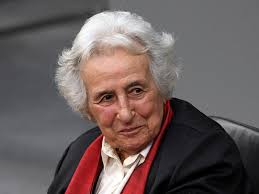The Remarkable Life of Anita Lasker-Wallfisch

Introduction
Anita Lasker-Wallfisch, an extraordinary Holocaust survivor and celebrated cellist, has spent her life sharing her experiences as a means of educating the world about the atrocities of the Holocaust. Born in 1925 in Breslau, Germany, Lasker-Wallfisch’s life story serves as a powerful testament to resilience and the importance of remembrance, highlighting the ongoing relevance of Holocaust education in today’s society.
Background
At the age of 18, Lasker-Wallfisch was deported to Auschwitz alongside her family. In a twist of fate, she was selected to join the women’s orchestra at the camp, where she played the cello, which ultimately saved her life. After enduring unimaginable hardship, including the loss of many family members, Lasker-Wallfisch was liberated from the camp in 1945.
Following the war, Anita relocated to England, where she continued her career as a professional cellist. She became a prominent figure in the music world, performing with various orchestras and chamber ensembles. Her experiences during the Holocaust, while harrowing, shaped her outlook on life and instilled in her a commitment to share her story.
Education and Advocacy
In addition to her music career, Lasker-Wallfisch has dedicated herself to Holocaust education. She frequently speaks at schools, universities, and community events, sharing her story with younger generations. Her sessions emphasize the importance of tolerance and understanding among different cultures, warning against the dangers of hatred and prejudice.
Anita has also been involved with various organisations that aim to preserve the memory of the Holocaust, serve as a witness to history, and educate people about the consequences of discrimination. Her work not only educates but also inspires hope for future generations to combat injustice and ensure that “Never Again” becomes a reality.
Conclusion
Anita Lasker-Wallfisch’s life is a compelling reminder of the resilience of the human spirit in the face of atrocity. As an educator, she plays a pivotal role in Holocaust remembrance, and her legacy continues to resonate with those who hear her story. In a world where division and intolerance still exist, Lasker-Wallfisch’s message of compassion and understanding remains vital, urging us to remember the past to shape a better future for all.









